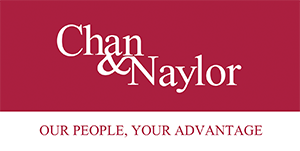What is a Hybrid Trust?
A Hybrid Trust is a cross between a Discretionary and a Unit Trust. This type of structure is quite appealing because it includes the benefits of both and is an extremely useful structure. You can split the trust up into units while also having beneficiaries to distribute to at your discretion.
Hybrid trusts take the best features of a discretionary trust and the best features of a unit trust and blend them in the one entity to create a flexible structure. They allow the respective rights and entitlements of unrelated third parties to be respected, and once this is done, between those parties and all related persons (e.g spouses, children, related family trusts and so on).
The income tax, capital gains tax and asset protection attached to hybrid trusts means that they are often the preferred method of structuring a business or investment activity. This is particularly where more than one un-related party is involved: for example, two separate family groups who are buying a commercial property together.
Features & Benefits of a Hybrid Trusts
- Corporate Trustee – Limited Liability: Using a corporate trustee limits the liability of the trust, protecting the assets and reducing risk.
- Tax Planning Flexibility: Hybrid Trusts offer significant flexibility in tax planning. Income and capital gains can be allocated to beneficiaries in a tax-efficient manner.
- Stamp Duty Advantages: In some Australian states, units in the trust can be issued and redeemed without incurring stamp duty, which can result in significant cost savings.
- Income and Capital Gains Taxation: Income and capital gains are taxed in the hands of the beneficiaries, which can be beneficial if they are on lower tax rates.
- Passing Benefits Without Ownership Change: Benefits or income can be distributed to beneficiaries without altering the ownership of the underlying investments, maintaining stability and control.
- Control of Investments: The appointer of the trustee, who typically places the assets into the trust, retains effective control over the investments.
- Confidentiality: Hybrid Trusts offer a high degree of confidentiality, as there are no statutory disclosure requirements for the beneficiaries.
- No Audit Requirements: Trusts do not have mandatory audit requirements; accounts are only prepared for income tax return purposes.
- Ease of Ownership Changes: Entry and exit of owners in a Hybrid Trust are relatively simple, providing flexibility in managing trust participants.
- Simplicity in Winding Up: Trusts are relatively straightforward to wind up, compared to other corporate structures.
Potential Disadvantages
- Higher Costs: Establishing and administering a Hybrid Trust is generally more expensive than setting up an individual or partnership structure.
- Legislative Changes: There is always the risk of legislative changes that could affect the taxation of trusts.
- Complex Structuring for Negatively Geared Investments: Careful structuring is required for negatively geared investments, as capital and revenue losses could be quarantined within the trust.
- Land Tax Issues: In states like Victoria and New South Wales, Hybrid Trusts might be treated as Special Trusts for land tax purposes, which could result in higher tax liabilities.
- Franking Credit Issues: When grossed-up dividends are less than net losses from other sources, refundable franking credits can be lost, and carry-forward losses may be reduced by the amount of franking credits lost.
The ATO issued a Tax Determination against these Trusts used for property investment. Refer to our Property Investors Trust (PIT) which has an Approved Product Ruling from the ATO for property investments.
About Chan & Naylor
Founded in 1990, we have partnered with thousands of businesses and property investors all over Australia. Choosing Chan & Naylor Pymble means you’re not just selecting a service provider; you’re gaining a partner aligned with your business goals. You’ll have access to a dedicated client manager supported by a team of accountants that specialises in business tax and investments. Contact us today so we can discuss how we can help you.
Disclaimer
This article serves as general information only and may not account for the unique circumstances of individual readers. For personalised and strategic solutions tailored to your specific situation, we invite you to seek professional advice from Chan & Naylor. Our highly experienced team is dedicated to helping you navigate the complexities of Australian taxation, ensuring that your financial strategies align with the latest regulations. Contact us today to embark on a path of informed and customised tax planning for your property investments.





